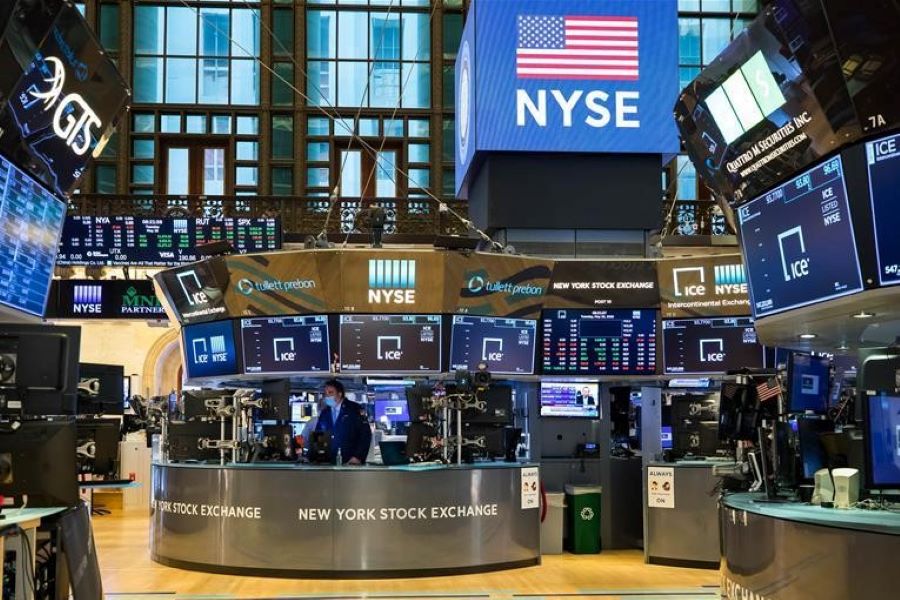Joint efforts needed to allay doubts over US listing bill


Experts have called for joint efforts by Chinese and United States authorities to further strengthen regulatory cooperation over US-listed Chinese firms to safeguard interests of all concerned.
The topic has been in the spotlight after the US Senate passed the Holding Foreign Companies Accountable Act on May 20, a bill that could expose US-listed Chinese firms to delisting risks.
China's top securities regulator, the China Securities Regulatory Commission, said it "strongly opposes" the proposed act as it has politicized securities regulation with content targeting China.
"We also call on joint efforts from regulators of both sides to engage in equal and constructive consultations, in order to achieve substantial and timely progress in joint inspection over relevant accounting firms," said a CSRC statement released on Sunday.
According to the proposed act, foreign issuers who fail to satisfy inspection requirements of the US Public Company Accounting Oversight Board, the organization that oversees the audits of US-listed companies, for three consecutive years will be delisted.
The bill requires foreign issuers to submit audits for inspection by the PCAOB, and to certify that they are not owned or controlled by a foreign government.
It still needs to be passed in the US House of Representatives before reaching the president's desk to be signed into law. But analysts said the act will probably be implemented, given the US administration's tendency to politicize economic issues regarding China.
If implemented, US-listed Chinese firms will face a dilemma between complying with domestic laws and opening their books to the PCAOB, said Liu Chunsheng, an associate professor at the Central University of Finance and Economics.
Many US-listed Chinese firms could face the risk of forced delisting, especially those that are State-owned or have close relations with the government, Liu said, adding that the proposed act also signaled increasing regulatory uncertainties for US-listed Chinese firms.
Luo Wei, an associate professor of accounting at Peking University's Guanghua School of Management, said large-cap US-listed Chinese firms may bear the brunt of the proposed act, if enacted, as regulators may impose the new rules against them first.
But the proposed act could hurt the interests of US investors as well, as many high-growth Chinese companies may leave the market, let alone the losses caused by forced delisting or other induced measures, said Liu.
The CSRC statement said the bill, if enacted into law, would harm the interests of both China and the US. "While impeding foreign issuers from listing in the US, it would also undermine global investors' confidence in the US capital markets."
Liu Junhai, director of the Business Law Center at the Renmin University of China, called for the two parties to meet each other halfway and reach a deal to strengthen securities regulatory cooperation, to protect interests of both Chinese firms and US investors.
Behind the proposed act is the contradiction between China's need to safeguard its sovereignty of securities inspection and the US administration's need to protect investor rights, Liu said, adding that the recent reporting scandal of Luckin Coffee Inc was a catalyst for the bill.
"The CSRC's suggestion of promoting joint inspection is sincere and feasible," he said.
Under the current inspection cooperation framework, Chinese regulators grant access to working papers of Chinese auditing firms upon the request of the PCAOB on a case-by-case basis.
"But the mechanism may not have gone so well," said Dai Guanchun, a partner at Jingtian & Gongcheng, a Beijing-headquartered law firm.
"With the leaderships of the two sides paying adequate attention, a more comprehensive and practical bilateral cooperation framework can be established," said Dai.
Wang Jiyue, an independent investment banking analyst, said the trend of US-listed firms returning to the Chinese mainland or Hong Kong for re-listing has taken shape against the backdrop of China-US trade friction, with the bill set to be a new catalyst.
Internet giants JD and NetEase are planning listings in Hong Kong next month, while chipmaker Semiconductor Manufacturing International Corp said it would re-list on the Shanghai bourse.



































